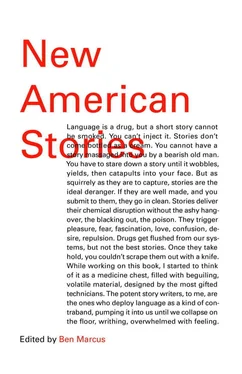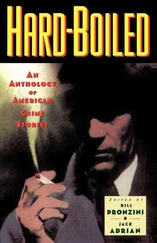I didn’t tell my mother anything, but when she left that day, she gestured toward the bedroom. “You know that you can find people at the university who will translate that for you.”
I nodded and stared at my feet.
“Maybe you don’t really need them translated? Maybe you already know what they say?” She ducked her face under, so that she could look at my face. “It’ll be okay,” she said, “either way.”
I stockpiled the letters for two months. I didn’t intend to be malicious; I was just sitting on them until I could figure out what to do. Every night as I drove home from the fields, I thought, I will tell Rezvan tonight; I will say I know everything and I am leaving. But when dinner came, I could hardly speak. It was as if I were eleven all over again.
Even Rezvan was getting depressed. He said that his letters were turning out to be all in vain. Perhaps, he said, he would quit writing them altogether. One night he said, “Nothing gets through those bastards. Perhaps I will never see Rilia again.” Then he limped to the sink, rocking back and forth, and filled his glass with water. He turned to me and said, “Why would they want to keep us apart, anyway?” His head was tilted to the side, and he looked like a child. He stared at me as if he really expected me to answer.
“I don’t know,” I said. “I don’t know about that stuff.”
But of course I did. At the other end, across the ocean, men in uniforms were collecting letters and censoring them, blacking out whatever threatened them, and at this end I in my housecoat was doing the same thing.
I tried to rise above the situation, but that strategy didn’t work at all. I was increasingly distressed at what I saw. I’d fly up and look down. There she is, I’d say, Margit Bergen of Saskatchewan. Who would have thought she’d grow up so crooked, crouched on her bed, obstructing love, hoarding it, tearing it apart with her own hands.
Until this point in my life I had always thought of myself as an open-minded person, able to step into another’s shoes. But I could not picture this Rilia. Her face, and the faces of her children, were blank for me. I hoped that this inability, or unwillingness, to imagine another’s face was not hatred, but I was deeply ashamed that it might be.
Finally, one windy night in November, as I cut into a roast, I said, “Rezvan, is Rilia your wife?”
“What do you know of Rilia? Has she called? Has she sent a letter?”
“No, not at all. I was just wondering.”
“Tell me what you know.”
“I don’t know anything. I was just asking.”
“Have you spoken to her on the phone?”
“No, I have not.” I enunciated this very clearly. “Is she your wife, Rezvan?”
“I am not a liar,” he said. “I will marry you to prove this. We will go to British Columbia and get married in the trees. Whenever you want. Tomorrow, if you like.”
—
The next morning I put the letters in a bag and drove straight to the administrative offices at the university. A woman disappeared and reappeared with a list of professors who could translate Romanian for me. I had my choice of four. I glanced down the list and there, at number three, was Professor Roland Pine.
I found him in the same office. He had aged well, his hair now ash instead of blond, a few extra lines across his face. When he stood up to greet me, I saw that I had grown to be about half a foot taller than he was. His tic was still there, flashing across his face every fifteen seconds or so. As I shook his hand, I marveled that it had continued like this since the last time I’d seen him, keeping time as faithfully as a clock.
“My name is Margit Bergen. I came to you once as a child.”
“Hello, Margit. It’s nice to see you again. Was I helpful?”
“Yes, very. I’ve always been grateful.”
“What was the problem in those days?”
“Just childhood depression, I guess. My parents were splitting up.”
He squinted at me, and turned his face slightly to the side. “Oh, yes,” he said. “That’s right. Of course. Little Margit. You were such a girlie-whirl. So sad. What did you become?”
“You mean in my life?”
“In your life. What did you become?”
“A soil consultant.”
“What a good job for you.” He gestured toward the black leather chair. His birds fought in their high cages, their wings tearing at each other. “Mortalhead. You be nice to Eagerheart.” He turned to me. “The kids love funny names, you know. Mortalhead, Eagerheart, Quickeye.”
I smiled and sat down in the chair, pulling a stack of letters from my bag. “Professor Pine,” I said.
“Call me Roland,” he said. He leaned back. His face cracked in a tic. “Roland Boland. Just think: little Roland and little Margit, the professor and the soil consultant, back again, sitting in a warm office surrounded by bird-people.” He rolled his eyes and grinned, almost girlishly.
I didn’t know what to say. “Yes, it’s nice,” I eventually said. “Actually, Roland, I was wondering if you could help me out with a problem I have.”
“I thought I solved all your problems.” He looked disappointed.
“You did. I mean, for twenty years you did.”
“What could be the problem now?”
“I need you to translate these letters for me, from Romanian.”
“Romanian?” He took the stack of letters from me, and began to leaf through them. “Is your name Rezvan?” he said.
“He’s a friend of mine.”
“Then you should not read his letters.” He smiled.
“Professor Pine, I really need you to do this for me.”
“Who is Rilia?”
“I don’t know. Look, you don’t even need to read them to me. Just read them to yourself and tell me if the people writing them are married.”
“Why do you want to know?”
“That doesn’t matter. I just do.”
“Why?”
I didn’t say anything.
“Are you being a dirty-girlie?” He smiled — and then a tic, as forked as lightning.
I sighed and looked over at his birds, who were cawing loudly. One was green with black wings, and it was flapping furiously, staring at the letters fluttering in Professor Pine’s hand.
“Fine, Professor Pine. If you don’t want to read them, I’ll take them to somebody else.” I reached for the letters.
He pulled them back, toward his chest. “Okay, okay, girlie,” he said. “You are so stubborn, Margit.”
He read softly, in a lilting voice, as if he were reading me a bedtime story. “Rilia says, ‘Remember how tiny Florian was at his birth? Now he is forty-five kilos, the same as his brother.’ Rilia says, ‘Remember the Black Sea, it is as blue as the first time we went to it.’ Rilia says that Rezvan must be lying when he says there is so much food that sometimes he tosses rotten fruit from the window.”
I interrupted. “Do you think they are married?”
“Well, they are both Balescus.”
“They could be brother and sister?”
He frowned, and leafed through the letters again. “But here she calls him darling. Darling, barling, starling.”
He looked up then. “Oh, no,” he said, “don’t cry. Please don’t cry.” He jumped up, came around the side of the desk, and crouched beside my chair. He looked up at me. His face was close, and the next tic was like slow motion. I saw the path that it followed, curving and winding like a river down his face.
He sat back on the edge of his desk. “It’s going to be okay,” he said. “We just have to figure out what the girlie wants. If you want Rezvan, the liar face, you can have him. Is that what you want?”
“No, I don’t think so. I mean, I do, but I can’t. He has kids and everything.”
“Then it sounds like you’ve made up your mind already.”
Читать дальше










![Женя Джентбаев - neo futura [stories]](/books/692472/zhenya-dzhentbaev-neo-futura-stories-thumb.webp)

